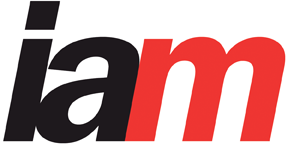Corporate legal managers and the business teams they support complain seemingly constantly ab out outside counsel expense, and intellectual property ("IP") is no exception. And, why wouldn't they complain when every dollar spent on legal representation is money that is effectively removed from the company's P&L statement? This sets up an ongoing tension between corporations and law firms to reduce legal costs even while lawyers' incomes have sky-rocketed in recent years.
For most corporate buyers of legal services, however, the ability to obtain substantive cost reduction has been somewhat limited due to the lack of transparent information available about legal fees. It may be even more difficult for corporate legal services buyers to gain meaningful reductions in IP costs because of the highly specialized nature of this area of law practice which, arguably, makes IP more of a "Black Box" than most areas. Moreover, regardless
out outside counsel expense, and intellectual property ("IP") is no exception. And, why wouldn't they complain when every dollar spent on legal representation is money that is effectively removed from the company's P&L statement? This sets up an ongoing tension between corporations and law firms to reduce legal costs even while lawyers' incomes have sky-rocketed in recent years.
For most corporate buyers of legal services, however, the ability to obtain substantive cost reduction has been somewhat limited due to the lack of transparent information available about legal fees. It may be even more difficult for corporate legal services buyers to gain meaningful reductions in IP costs because of the highly specialized nature of this area of law practice which, arguably, makes IP more of a "Black Box" than most areas. Moreover, regardless
Everything’s Negotiable: How Corporations Can Drastically Reduce Their IP Legal Costs without Sacrificing IP Quality
Is There an Emerging Business Model for IP Lawyers’ Owning So-Called "Patent Trolls"? Only Until Their Corporate Clients Find Out.
Dennis Crouch of The PatentlyO blog recently posted an intriguing tidbit about about well-known IP attorneys Carl Moore (Of counsel at Marshall Gerstein); Timothy Vezeau (patent attorney at Katten Muchin); and Nate Scarpelli (who used to and still appears to be associated with Marshall Gerstein). These prominent members of the Chicago IP community appear to be "moon-lighting" from their respective law practices to act as managing partners at a patent holding company called "Virtual Photo Store LLC" ("VPS"). As reported in PatentlyO, VPS is currently involved as defendant in a Declaratory Judgment action.
Here is a copy of the DJ Complaint, also posted at PatentlyO. (Interestingly, the Complaint lists VPS' address as that of the Marshall, Gerstein law firm.)The Complaint alleges that VPS is a non-practicing entity
about well-known IP attorneys Carl Moore (Of counsel at Marshall Gerstein); Timothy Vezeau (patent attorney at Katten Muchin); and Nate Scarpelli (who used to and still appears to be associated with Marshall Gerstein). These prominent members of the Chicago IP community appear to be "moon-lighting" from their respective law practices to act as managing partners at a patent holding company called "Virtual Photo Store LLC" ("VPS"). As reported in PatentlyO, VPS is currently involved as defendant in a Declaratory Judgment action.
Here is a copy of the DJ Complaint, also posted at PatentlyO. (Interestingly, the Complaint lists VPS' address as that of the Marshall, Gerstein law firm.)The Complaint alleges that VPS is a non-practicing entity
News Items: IAM 250, IP Metrics Benchmarking Study and New Blog for Innovation Entrepreneurs
Regular readers of the IP Asset Maximizer blog will note that my postings have been a bit sparse lately. I have been taking some time off with my family, and will be continuing to do so until later in June 2009. I appreciate your patience. I have some timely news items to share in the interim, however.
IAM 250 Awards  I am proud to announce that I have been named one of the IAM 250 for 2009. This award is given by IAM Magazine to those non-corporate IP Strategists judged by their peers as the leaders in IP Strategy. With Duncan Bucknell, Suzanne Harrison, Kevin Rivette, Andrew Watson and many others whom I respect greatly on the list, it is a great honor to appear on this inaugural list of the world's leaders in
I am proud to announce that I have been named one of the IAM 250 for 2009. This award is given by IAM Magazine to those non-corporate IP Strategists judged by their peers as the leaders in IP Strategy. With Duncan Bucknell, Suzanne Harrison, Kevin Rivette, Andrew Watson and many others whom I respect greatly on the list, it is a great honor to appear on this inaugural list of the world's leaders in
Chief Circuit Judge Michel Agrees with Me: NPE’s (aka "Patent Trolls") are Not Necessarily "Illegitimate"
On his great 271 Blog, Peter Zura posted excerpts of the Chief Circuit Judge Michel's keynote address at the FTC hearings on "The Evolving IP Marketplace" last December where Judge Michel addressed the state of patent law and patent reform. Anyone interested in patents, the USPTO and patent reform should take a look. I posted a comment on this post, and am reposting it here (with additions) along with Judge Michel's comments about NPE's as presented on the 271 blog. Specifically, I was intrigued by Chief Circuit Judge Michel's view that NPE's ("non-practicing entities" also known by the pejorative term "patent trolls") should not be viewed as somehow "illegitimate." He apparently believes that by allowing those who are on the receiving end of NPE lawsuits to control the argument by "naming and framing" (my phrase) the problem as "trolls" is not helpful. Here is the excerpt of this part of
A Response to PWC’s "Starry-Eyed" View of the Value of Litigation as Effective Way to Monetize Patents
 I recently became aware of this patent litigation analysis prepared by PriceWaterhouseCoopers (“PWC”) (hat tip: Marcus Malek of the Intangitopia blog). The report appears to be rigorously prepared from data obtained from a large number of reported patent litigation cases dating from 1995. I read this report with interest and think that anyone who is interested in the ROI of patent enforcement should read it also. The data provide a wealth of information for anyone even thinking about bringing a patent case or who is involved in defending against claims of patent infringement.
Although the data in the PWC provides informational value, I nonetheless have a big problem with the following assertion that is prominently presented on page 18 under the title “What This Means for Your Business”:
"In light of the findings in this study, patent
I recently became aware of this patent litigation analysis prepared by PriceWaterhouseCoopers (“PWC”) (hat tip: Marcus Malek of the Intangitopia blog). The report appears to be rigorously prepared from data obtained from a large number of reported patent litigation cases dating from 1995. I read this report with interest and think that anyone who is interested in the ROI of patent enforcement should read it also. The data provide a wealth of information for anyone even thinking about bringing a patent case or who is involved in defending against claims of patent infringement.
Although the data in the PWC provides informational value, I nonetheless have a big problem with the following assertion that is prominently presented on page 18 under the title “What This Means for Your Business”:
"In light of the findings in this study, patent
Scott Garrison Guest Posting: A True Story of Wasted IP Assets & Why a Chief IP Officer Could Have Stopped the Loss
NOTE TO READERS: Since I am on vacation this week (well, sort of), I have asked my friend Scott Garrison to pen a piece about IP Strategy for me. He has been so gracious to do so, and the post follows. At bit about Scott: Scott Garrison is Chief IP Counsel and Assistant General Counsel for Scientific Games which, among other things, makes scratch off lottery tickets. Prior to joining SciGames, Scott was a senior IP attorney at Kimberly Clark and, prior to that, was a law firm patent attorney. Scott Garrison is a true IP Strategist and I am pleased to present him a forum to express his views on this blog. Scott's blog post: A short while ago I had an interesting conversation with an out of town acquaintance named "Mike" who works at a large international B2B ("business to business") corporation. I was interested to find out that his
An Introduction to Patent Monetization Resources for Corporations and Entrepreneurs
For corporations and entrepreneurs seeking to monetize their un- or under-utilized patent rights for the first time, it can be difficult to know where to begin. The patent monetization market is not yet mature and, as with other emerging marketplaces, no established methodologies and few experts exist to guide patent owners through the process. Today, there are as many as 17 different business models used to monetize patent rights. More will likely spring up as the market continues to evolve, even while some of the current models will certainly fall away. With such a range of options, it is not surprising that those seeking to sell their patent rights may be confused about what path to take. This blog post is intended to provide an overview of ways that a corporate and individual patent owners can most effectively monetize their patent rights in today's market. The models discussed in this article
Confessions of a Reluctant Convert to Electronic Patent File Management Systems & Why I Am Now a True Believer
For many years, vendors of office automation systems expended considerable effort trying to convince corporate and law firm patent attorneys to adopt paperless file management systems by touting the time and money savings associated with electronic files over the traditional patent file system. However, relatively few patent attorneys have done so, instead, remaining loyal to the traditional three-sided manila patent file folder. Until recently I was one of those patent attorneys. Now that I have discovered the vast efficiencies and improvements possible with these electronic systems, the question is why I remained true to this clearly outdated system of maintaining client patent prosecution records. Given the remarkable efficiency and knowledge management improvements possible with electronic patent file management systems, there can be no viable excuse for either corporate or law firm patent attorneys not to adopt such systems.In retrospect, I think I found that the heft and history represented by the
Without Disruptive Innovation, Many IP Law Firms are Destined to Meet the Same Fate as Buggy Whip Manufacturers
A possible upside to the recent economic downturn is that many previously accepted business models are being revealed as in need of substantial reinvention or even total elimination. The billable hour/leverage law firm model for legal services is one of these increasingly maligned business models, and is now appearing to be in danger of ending up in the dustbin of history. Specifically, even those who benefit handsomely from the billable hour, such as the Cravath firm's many $ 800 per hour lawyers, now realize the fundamental irrationality of charging a client for time spent instead of value provided. This alone should signal that change is in the air. Notwithstanding the growing conversation about the need for alternative legal service billing methods, I fear that the majority of IP law firms will either try to ignore the desire for change or will respond by offering
The US Patent Office’s Impending Financial Crisis and What Sort of Disruptive Innovations Might be Seen as a Result
My postings have been light for the past few weeks because of the Holidays. I plan on re-posting regular content after the New Year. Nonetheless, I couldn't help posting something this week during my vacation after coming across this wonderful analysis of recent patent issuances post-KSR from Matt Buchanan of the Promote the Progress website and blog. Matt's analysis of PTO issuances over the past several years shows that KSR definitely had an effect on the number of patents issued in the last year. What is obvious from Matt's 2008 issuance data is the fact that the PTO experienced a significant decline in revenue over the past year due to the reduction in issue fees paid by successful patentees. Moreover, this revenue decline will certainly be felt over the next 10 plus years as a result of a reduction in maintenance fees that would have been


